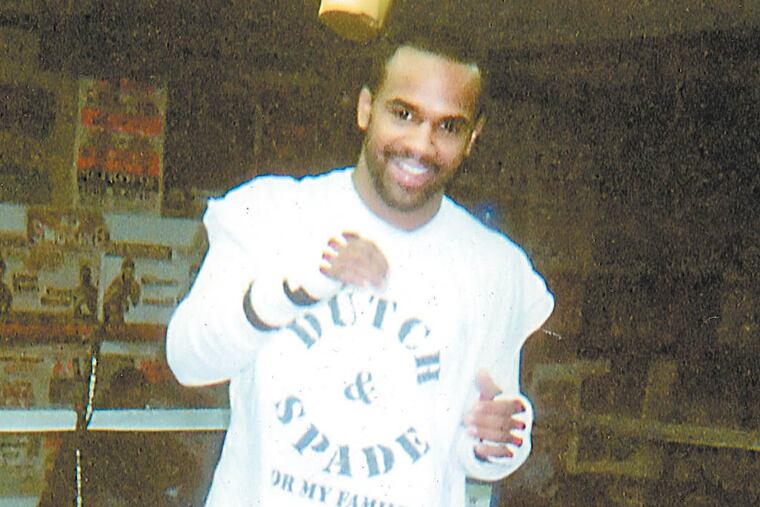Kaboni Savage associate in firebombing gets 40-year sentence
Lamont Lewis had been one of Savage's trusted assistants, but cooperated with the government and helped the feds' case.

A FEDERAL prosecutor yesterday told a judge that he had to decide whether Lamont Lewis was a monster or a human being.
Lewis was the hit man whom former drug kingpin Kaboni Savage, while in prison, ordered to carry out the Oct. 9, 2004, firebombing on a North Philly house that killed the mother, infant son and four other family members of a federal witness who had agreed to testify against Savage in a drug-trafficking case.
Assistant U.S. Attorney John Gallagher said he decided that Lewis - who became a government cooperator and testified against Savage at a trial last year - is human, and not a monster.
Lewis has been truthful, remorseful and provided substantial inside information into Savage's drug organization, Gallagher passionately told U.S. District Judge R. Barclay Surrick.
Gallagher and co-prosecutor David Troyer urged the judge to sentence Lewis, 38, to 40 years in prison, the minimum sentence under his plea agreement. The maximum sentence he could have received was life in prison.
Surrick agreed that Lewis deserved the 40-year sentence.
The judge noted Lewis' "powerful" testimony at the trial and said that he seems remorseful.
Lewis, the government's star witness at the trial, had testified that Savage and his sister, Kidada Savage, had plotted the firebombing. Lewis said he recruited his cousin Robert Merritt to help carry out the arson.
Lewis pleaded guilty in 2011 to his role in the firebombing. As part of his plea agreement, he pleaded guilty to five other murders and agreed to testify against Savage and other co-defendants.
Lewis told the judge yesterday: "I am very sorry." He said he doesn't spend a day without thinking "of the heinous crimes I did."
In one example of Lewis' remorsefulness, Gallagher shared a chat he had overheard between Lewis and Thomas Zielinski, a police detective who was assigned to an FBI task force on the case.
During a break in a meeting with investigators, Lewis said he knew that he would go to hell for what he did, Gallagher said. To that, Zielinski, now retired, said he didn't know if that were true, but said that his God is a forgiving God. Lewis replied that he was raised in the church, but still had committed his crimes. " 'There is no redemption for me,' " Lewis told Zielinski, Gallagher recalled.
One of Lewis' lawyers, Bill Nugent, said he believed that his client's cooperation was key to the feds' charging Kidada Savage in the case. The attorney noted that Lewis had testified at the trial that he did not know that kids were in the house until after he saw TV news about the firebombing.
Nugent said that Lewis even cooperated against his own cousin, Merritt, because he felt an obligation to the victims and their families to tell the truth. As Nugent spoke, tears streamed down Lewis' face. Christopher Adams, another defense attorney, gave tissues from his suit pocket to Lewis to wipe his tears.
Savage, 39, housed in the "supermax" prison in Florence, Colo., was sentenced to death. Kidada Savage, Merritt and co-defendant Steven Northington got sentences of life in prison.